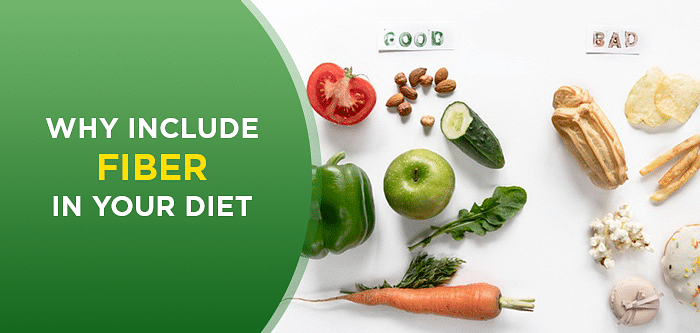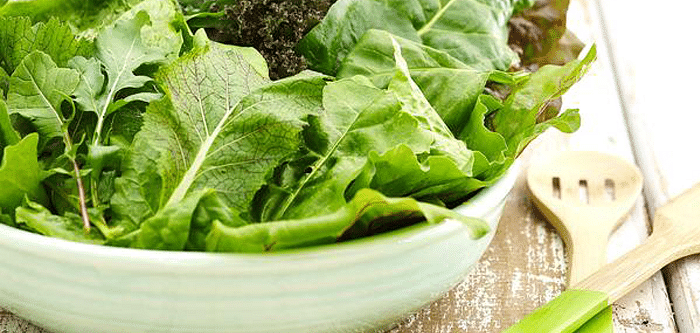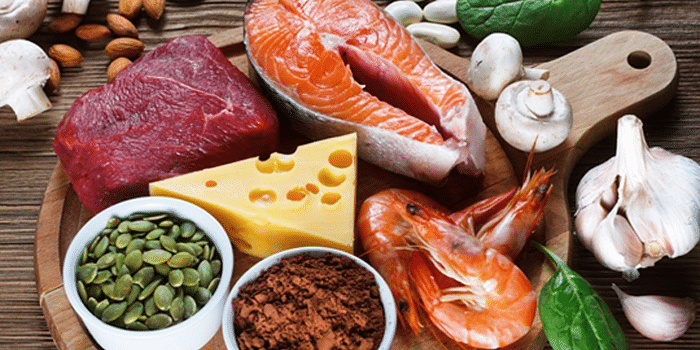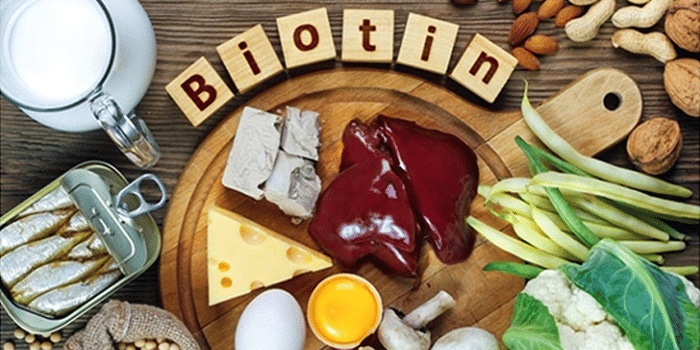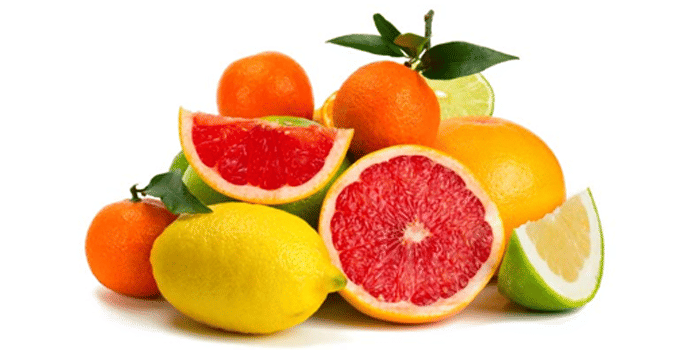Table of Contents
The start of a great day depends on a lot of things. But we suggest you pay attention to our friend in need, our digestive system. Hats off to its capacity, though! But do you know what can provide you with that ease of maintaining a healthy digestive system? They are, of course, as the title suggests, fibre-rich foods. And no, this solution doesn't only cater to that need but also multiple others that we want you to know ASAP so that you can consume fibre-rich food for constipation, weight loss, and numerous other health benefits. We are not Omniscient, but we are here to help you in every possible way. So here it goes.
Fibre or roughage keeps our motions regular, but that's not all it does for our bodies. Eating good sources of fibre foods helps us lose weight, improves skin health, and prevents heart disease, strokes, and diabetes. Studies have shown that it might also help reduce the risk of colon cancer.
Fibre is a significant constituent of plant-based foods like nuts, fruits, grains, vegetables, and beans, which the body cannot directly break down in digestion. Since it passes undigested, it cleans the digestive system quite well. It eases bowel movements and flushes carcinogens and cholesterol out of the body, keeping the digestive system healthy.
Daily exercise and a healthy diet are essential for good health. However, you must exercise and intake calories according to your body's needs. Getting professional advice on diet and exercise is necessary. With the FITPASS app, you can work out at 7,500+ premium fitness centres, get expert nutritional advice, learn more about what foods have fibre, and stay fit on your terms.
Key Takeaways
- Fibre is crucial for digestive health. It aids in weight loss, prevents diabetes and cancer, detoxes the body, and promotes the growth of healthy gut bacteria.
- Two main types are soluble fibre, which dissolves in water, and insoluble fibre, which doesn't dissolve.
- Good fibre sources include fruits, vegetables, whole grains, nuts, seeds, beans and lentils.
- Start your day with a high-fibre breakfast like oatmeal, add veggies to meals, snack on fruits, and choose whole grains over refined grains.
- Gradually increase fibre intake and stay hydrated to avoid discomfort.
Types of Fibres

- Soluble fibre: Dissolves in water, regulates blood sugar, and reduces cholesterol. Some good sources of fibre - Oatmeal, beans, nuts, barley, citrus fruits, apples, berries, pears, etc., are all excellent sources of soluble fibre.
- Insoluble fibre: A bulky fibre that doesn't dissolve in water; it prevents constipation. Some foods have fibre - Celery, carrots, wheat cereals, whole grains, and tomatoes are excellent sources of insoluble fibre.
Several foods contain both fibre types, and some, like meat, dairy, and sugar, contain no fibre. White bread, rice, pastries, etc., contain negligible amounts of fibre, and processed foods contain almost no fibre.
Benefits of Fibre

Weight Loss

Fibre-rich foods help people lose and maintain weight by adding bulk to their diets. Protein and fibre-rich foods aid digestion and prevent constipation. Fibre fills you up sooner than other foods and thus reduces your food intake. Furthermore, it slows down food digestion, which decreases food consumption. Fibrous foods provide more energy for exercising and eliminate extra fats from the digestive system.
Fruits and vegetables are high in fibre and low in calories. Adding fibre-rich food to your diet for weight loss is excellent because it satisfies your hunger and reduces calories. Fibre improves the body's fat-burning capacity by regulating blood sugar levels. It also avoids spikes in insulin levels that increase cravings and reduce disposable energy.
Improves Digestion

Fibre bulks up stools, which makes it easier to pass. It prevents constipation and even diarrhoea since it absorbs water. Fibre also relieves the bothersome symptoms of IBS (Irritable Bowel Syndrome). Studies suggest that fibre-rich diets reduce the possibility of kidney stones, gallstones, haemorrhoids, and intestine inflammation (diverticulitis). Others have shown that it might reduce the risk of GERD (Gastroesophageal Reflux Disorder) and ulcers as well. Fibre-rich food for constipation thus proves to treat a lot of health issues.
Prevents Diabetes
Soluble fibre reduces the absorption of sugar, maintaining blood sugar levels. If you consume a lot of carbs, including fibre-rich foods in your diet is essential. Fibres prevent blood sugar levels from reaching harmful levels. Including insoluble high-fibre foods in your diet reduces the risk of type-2 diabetes.
Reduce the Risk of Cancer

Fibre benefits include a reduced risk of colorectal and breast cancer. High-fibre foods like vegetables and fruits are also rich in phytochemicals and antioxidants, further decreasing cancer risk. A lower risk of chronic diseases increases lifespan.
Naturally Detoxes the Body

If you consume enough fibre-rich foods, there is no need for natural detox drinks like juices. Fibre cleans the gastrointestinal tract by naturally scrubbing and eliminating toxins. Soluble fibres form a gel that soaks up harmful compounds like unhealthy fats before the body absorbs them. Fibre also removes chemicals like mercury, pesticides, and BPA.
Promotes Healthy Bacteria Growth
Fibre is a good source of sustenance for the good bacteria in your gut. These bacteria produce short-chain fatty acids by consuming fermented fibres in the gastrointestinal tract. These fatty acids lower inflammation and reduce the risk of obesity and heart problems. Consuming fibre manifests its benefits within a few days.
Improves Cardiovascular Health

A healthy heart requires a fibre-rich (soluble) diet. Soluble fibre benefits include reducing bad cholesterol (LDL) in the body. Fibre reduces the risk of metabolic syndrome, which is a significant cause of diabetes, stroke, and coronary heart disease. Finally, foods high in fibre content reduce inflammation, improve good cholesterol (HDL) levels, lower blood pressure, and reduce weight.
Tips To Add Fibre To Your Diet

Have Fibre-rich foods for Breakfast

Starting your day with whole grain cereals is an excellent way to get fibre. Instead of cornflakes, you can have bran flakes, which will add up to 6 grams of fibre to your diet. You can also have a hearty oatmeal breakfast with many fruits like apples, bananas, and berries on the side.
Add Veggies to Your Meals

Vegetables are one of the best sources of fibre. Their health benefits include lowering the risk of chronic diseases. Non-starchy veggies are delicious as they contain lots of nutrients and low calories. Moreover, consuming fibre-rich foods like veggies before a meal improves digestion and increases the amount of fibre consumed per meal. If you eat more fibre before a meal, you will feel full.
Have Fruit Snacks

We all get cravings for food at odd hours during the day. Some can carry fruits like pears or apples anywhere and eat them whenever they feel hungry between meals. They also satiate sugar cravings. Fruits are fibre-rich and much healthier than processed or packaged foods.
Include Whole Grains

Whole grains are minimally processed, leaving the grain intact. Refined grains, on the other hand, are robbed of their vitamins and fibres. While refined grains last longer, they only contain carbs that are absorbed quickly by the body. Add oatmeal, brown rice, barley, buckwheat, millet, quinoa, and other whole grains.
Have Chia Seeds

Chia seeds are superfoods that contain omega-3 fatty acids, vitamins and minerals, and protein. They are also 95% insoluble fibres that keep the digestive tract moving. Chia seeds are also associated with a lower risk of diabetes. Flax seeds have similar benefits on the body.
Fibre-rich foods help us effectively treat various health diseases. Including fibre-rich foods for weight loss and other purposes is vital in today's era of junk food. However, we want the whole package. So, to satiate the same, here is a reminder: maintaining the proper diet is as important as exercising. Remember to put on your training shoes now and then, and Get. Set. Sweat.
Consider taking a fibre supplement to ensure enough fibre in your diet. Fibre supplements can help you meet your recommended daily amount of fibre when you struggle to eat more from food sources alone. However, it's generally best to get fibre from whole food sources when possible, as these provide additional nutrients beyond just fibre.
When increasing your fibre intake, whether from food or supplements, be sure to do so gradually and drink plenty of fluids. Adding too much fibre too quickly can cause gas, bloating, and other digestive discomforts. Spread your high-fibre foods throughout the day and stay hydrated to allow the fibre to absorb water better and move smoothly through your digestive system.
Eating a high-fibre diet has many proven health benefits beyond just promoting regularity. Foods' fibre content can help control blood sugar levels, improve cholesterol levels, support a healthy weight, and reduce the risk of heart disease, diabetes, and some cancers. Integrating more fibre-rich foods and fibre supplements as needed is an easy way to promote overall heart health and well-being.




